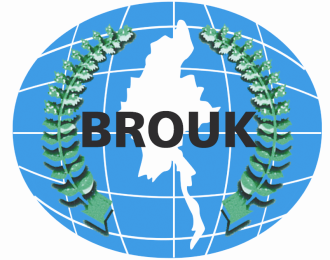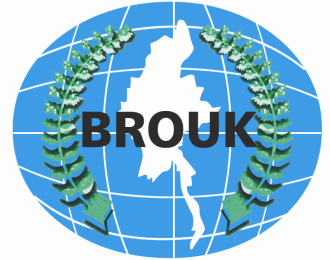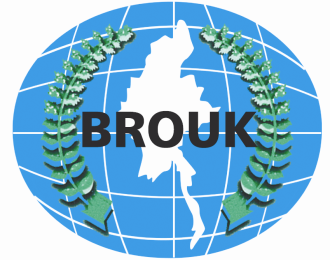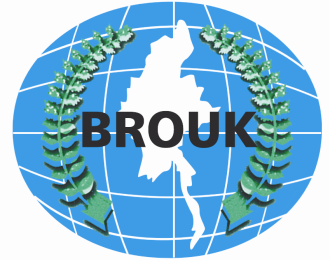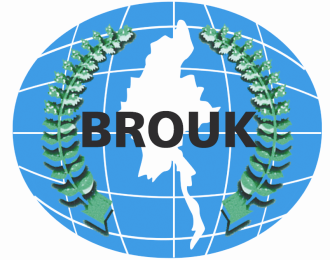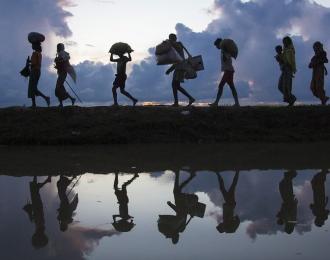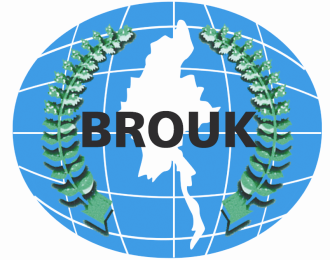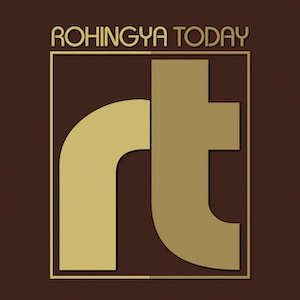
Rohingya Today
Since 2012, Rohingya homelands in Arakan state, Burma (or Myanmar), have been plagued by violence primarily driven by Burmese intent to continue slow-burning genocide against the Rohingya people and Chinese economic investments and projects i.e. Kyauk Phyu Deep-Sea Port, Gas and Oil, Rare Earth Minerals, Industrial Zones and other forms of development projects. In 2012, not mentioning the crimes against the Rohingya people amounting to Genocide and Crimes against Humanity, Rohingya residences and villages across the townships — such as Sittwe (Akyab), Pauktaw, Kyaukphyu, Thandwe, Myebon, Minbya, Mrauk-U, Kyauktaw — in Arakan state were burnt down or destroyed displacing more than 140,000 of them. And they have remained in displaced condition since then.
In further mass violence consisting gravest international crimes carried out in two phases, in 2016 and 2017 respectively, about one million Rohingyas fled Myanmar to Bangladesh. Their homes and villages mainly in their majority townships, Maungdaw and Buthidaung, were burnt down and flattened by the Burmese government in order to wipe out their existence.
And now, Rohingya regions in northern Arakan especially where Rohingya people were driven out of and that were emptied, is increasingly looking like a part of Beijing's "One Belt and One Road Initiative." It has become pretty clear that while the Burmese regime has been finishing their unfinished business from World War II i.e. Genocide of Rohingya (as Myanmar army chief snr. gen. Min Aung Hlaing put it on 1 Sept 2017 referring to a period during World War II in which Rohingyas took side with British, whereas Burmese and Rakhines took side with Japanese, leading Burmese ultranationalist leaders to incite Rakhines to carry out violence against the Rohingyas as the British withdrew from Burma), the violence taking place against the Rohingya people especially since 2012 has been a part of 'Grand Land-Grabbing Scheme' by China.
While in Bangladesh, the Bangladesh government is preparing to forcibly relocate about 100,000 Rohingya refugees or genocide survivors to Bashan Char, a remote low-lying island in the Bay of Bengal, prone to floods, storms and pirate attacks. If there will be proper telecommunication systems set up on the island for the refugees to communicate is still unclear. Once they have been relocated to the island, they will find extremely difficult to communicate with their relatives abroad and surviving relatives inside Myanmar. And therefore, it will be difficult for human rights observers, activists and international media to closely monitor the refugees and their human rights situation.
It is still uncertain what Bangladesh will do with other about 900,000 genocide survivors. The repatriation of the refugees to their homelands in Burma (Myanmar) does not seem imminent in the near future as the survivors do not want to go back without International Protection and Burmese government does not show any signs of fulfilling survivors' demands and treating them equal. Therefore, Bangladesh might have other plans for them such as relocating them to other remote places.
Case in point: this plan to relocate of around 100,000 Refugees to such a dangerous island and possible relocation of remaining ones elsewhere seem to be primarily related to SECURITY concerns about the said China's "One Belt and One Road Initiave" and development/industrial projects in the region. So, the relocation of the refugees seems an advance step to get rid of potential security threats posing to the projects in the longer run. As such, Bangladesh is an integral part of it as its railway minister Nurul Islam Sujon on Jan 27 announced that a long railway track connecting from Bangladesh, Myanmar, China, Thailand to Malaysia would be built and the project was expected to be completed by 2022.
Going by some internal sources, the Chinese Construction Companies have been silently constructing Highways and Railway tracks (parts of One Belt and One Road Initiative) in northern Arakan already for a few years amidst the tight security facilitated by the Burmese government and the constructions are about to be completed. Civilians and villagers are not allowed to access to the mountain side regions where the constructions have been going on.
As India, another regional power, stands to benefit from this specific part of the project by linking it with its own multi billion dollar Kaladan Project — which includes a deep-sea port in Sittwe (where Rohingya has been wiped out from key-areas during the state-sponsored violence in June 2012) and creating a multi-modal sea, river and road transport corridor for shipment of cargo from the eastern ports of India to Myanmar through Sittwe port as well as to north-eastern part of India — via northern Arakan, it has nothing much to oppose the Chinese-led railways and highway projects in northern Arakan but to facilitate them.
So, what could likely happen to these one million plus Rohingya refugees in Bangladesh including 100,000 on the Bashar Char island? Though it is still uncertain about the fate of the refugees in the distant future, there are two likely scenarios: 1) they could be coaxed, coerced or forced into repatriation to Myanmar without having the demands by the refugees to the Myanmar government fulfilled. And that repatriation may not be to their (Rohingyas') original homelands and villages in Myanmar but to some tiny areas designated by China and Burma (Myanmar) and concentration camps in northern Arakan built and modelled after China's own concentration camps for ethnic Uighur people in the country; 2) Bangladesh could persuade the Western Democratic Countries to take in the refugees and resettle them there. Here, the Western citizens and societies should ask themselves: China will enjoy the benefits from the economic projects on the Rohingya homelands, why should we bear the brunt of Genocide (carried out by Burmese military with the back-up of economic colonialist Chinese regime to implement these projects)?
Nevertheless, in the future, the western countries might have to accept these resettlement proposals for the Rohingya refugees because they are democratic societies that value human rights and have also been speaking up for their rights. They will be morally obliged to do so. So, what should citizens, civil societies, human rights groups and activists in the West do in this regard?
Before it is too late, citizens and civil societies in the Western countries should be asking their respective governments or responsible authorities to ram up pressures not only on the Burmese regime but also on the Chinese regime to put an end to this human tragedy; to give the Rohingya people International Protection; to bring the perpetrators of the Genocide to Justice, to effectively take actions so that the Burmese regime re-recognizes them as a native ethnic group of Myanmar and reinstates their Citizenship; and to give them all the human rights they deserve. This will be not only an action against Chinese and Burmese inflicted injustices but also a service to their own societies/nations.
Now that the atrocity crimes against the Rohingya has widely and rightfully so, been recognized as Crimes against Humanity and Genocide, there are a lot of scope to bring Burmese Genocide perpetrators to justice and save the Rohingya people under Genocide Prevention Convention, in the ICC (International Criminal Court) or by setting up 'Ad Hoc Independent Crime Tribunals.'
What should Rohingya survivors in Burma (Myanmar), Bangladesh and the Rohingya diaspora do to save themselves from Burmese way of slow-burning Genocide, meeting with and being emboldened by China's strategic and economic interests? They need to sit down and strategize their varied and diverse movements for their rights and freedom. Not just discussions, they need to act. They need to talk to one another. Not just that, they need to walk the talk.
M.S. Anwar is a journalist and activist. Views expressed here are of his and doesn't necessarily reflect editorial policy of Rohingya Today. He can be reached on twitter: @YoursRohingya.
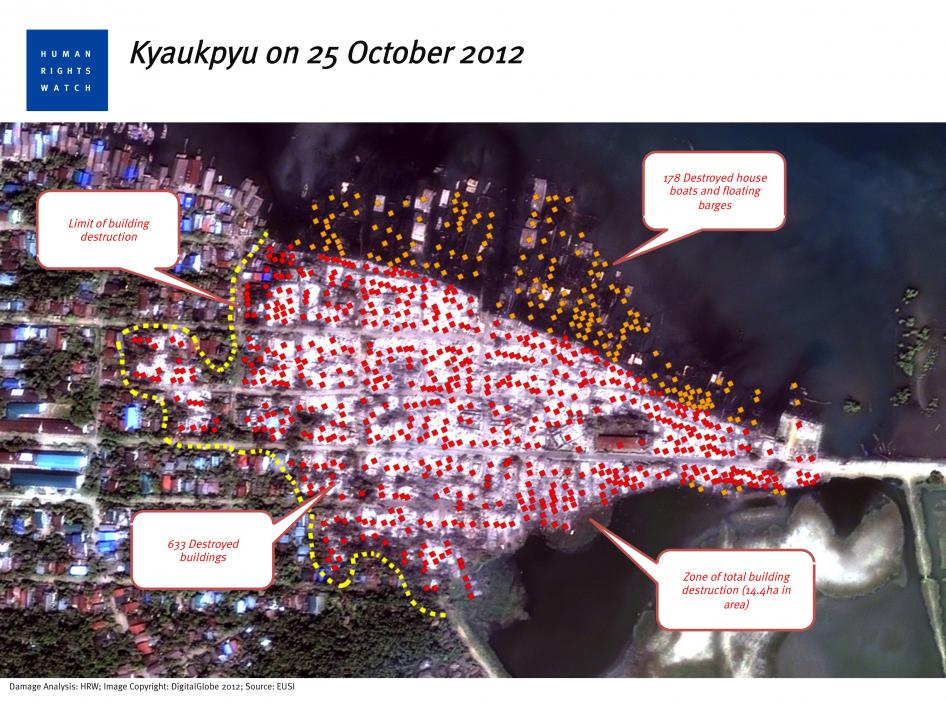
![Locals evacuate Rohingya refugees from a boat that came ashore on the north coast of Indonesia's Sumatra island in June 2020. The UNHCR says the journey across the Andaman Sea last year was deadlier than ever before [Rahmad/Antara Foto via Reuters]](/sites/default/files/styles/grid_list_330x260_/public/2025-05/2020-06-25T000000Z_355446050_RC2CGH9LTK3V_RTRMADP_3_INDONESIA-ROHINGYA.jpeg?itok=V6ouOxeq)
